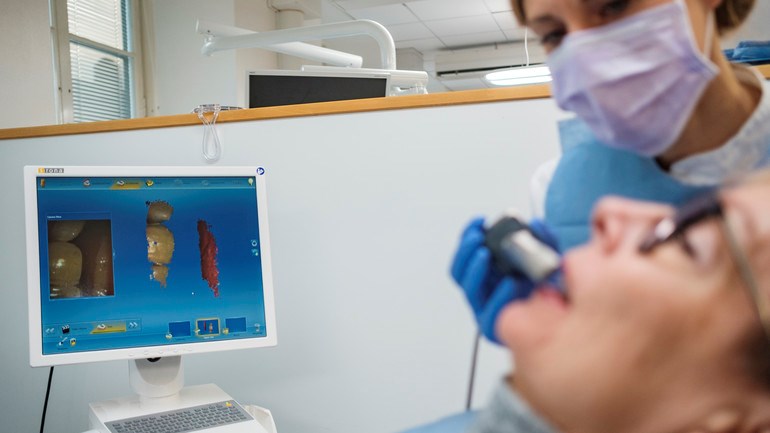Strong link between tooth loss and inflammatory bowel disease

Inflammatory bowel disease often coexists with periodontal disease. This is shown by new publications from a European research project that explored the connection between the two diseases.
How is oral health actually affected by an inflammatory bowel disease? And how does the mouth affect our gut? The fact that periodontitis can be linked to diabetes and cardiovascular disease is already well known, however, the relationship between periodontitis and inflammatory bowel disease (IBD) is not as well explored on a large scale in a European context.
The investigation not only showed that patients with intestinal disease had worse oral health than people without IBD, but also that the oral health of patients with Crohn's disease was more affected.
Kristina Bertl
Now two publications from a large research project with Danish patients show that there is a strong connection between the diseases.
“The study shows that patients with IBD have more periodontitis and fewer teeth compared to people without IBD. We also see that patients with IBD and periodontitis have an aggravated intestinal disease with a higher activity than patients with IBD who have no oral health issues,” says Andreas Stavropoulos, professor and senior dental officer at the Faculty of Odontology, and one of the researchers behind the study.
“Both diseases can be described as a strong overreaction of the immune system against a theoretically relatively mild bacterial trigger. You can say that the immune system attacks one's own body.”
In the survey, around 1,100 patients with IBD answered questions in an online survey. Around half of the participants had Crohn's disease and the other half had ulcerative colitis. About 3,400 people without IBD also participated in the study, who were randomly selected but also matched for certain criteria to the patients with IBD.
“The investigation not only showed that patients with intestinal disease had worse oral health than people without IBD, but also that the oral health of patients with Crohn's disease was more affected. They lost more teeth than patients with ulcerative colitis,” says Kristina Bertl, assistant professor and senior dental officer at the Faculty of Odontology.
Through contacts with the patient association for Crohn's disease and ulcerative colitis in Denmark, the researchers were able to find participants for the study. It was well known within the association that many patients had recurring problems with their teeth and infections and ulcers in their mouth. At the same time, they felt that this was not really addressed during health checks.
“The association was very keen to help. The participants stated that they did not receive any information about the possible connection between the two diseases, and that the problems with the teeth and the mouth were generally under prioritised,” says Stavropoulos.
Periodontitis initially causes relatively mild symptoms, such as bleeding gums when brushing the teeth, but can lead to tooth loss if not treated in time.
“Overall, the studies show that the oral health of patients with IBD should be followed up better to prevent the development of periodontitis and tooth loss in this patient group,” says Bertl.
“Similarly important, it may be that treatment of periodontitis has a positive impact on the management of IBD,” concludes Stavropoulos.
Text: Anna Dahlbeck & Adrian Grist